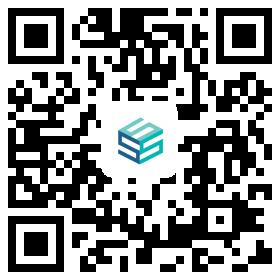撰文 Michael Allen
翻译 韩宇
审校 董堃
想想小时候成绩不好时爸妈常对你说的话:“看看别人家孩子。”
那么现在你可以理直气壮地顶嘴了:“看看别人家爸妈。”
科学研究表明,孩子学习成绩的好坏,很大程度上受到父母对科学热情程度的影响。

美国的一项长期研究表明,如果父母经常强调科学、技术、工程和数学(STEM)学科的重要性,那么孩子在预科考试中,数学与科学会考的更高。家长向孩子灌输关于科学的价值可帮助他们的考试成绩提高近 12%,这也鼓励更多青少年从事 STEM 相关职业。
上述研究包含于一项以孩子出生于 1990 到 1991 年间的威斯康星州家庭为研究对象的长期纵向调查。其中,STEM 部分的分析由威斯康星大学麦迪逊分校的心理学家 Judith Harackiewicz 牵头,数据来自 181 个家庭,这些孩子们分散在 108 所不同的高中就读。
参与家庭被随机分配到“干预组”或“对照组”。干预组的父母会收到为中学生准备的有关数学和科学实用性及相关性的信息:当子女在 15 至 16 岁读 10 年级(相当于中国的高一)时,父母会收到一本宣传册;升到 11 年级后,他们会收到另一本宣传册并且可以进入相关网站。而对照组家庭不会收到任何材料。
Harackiewicz 及同事曾发现,与对照组相比,干预组的孩子在中学阶段的最后两年会额外地参与将近一个学期的数学或科学的课程。
而最新研究显示,干预组学生在中学毕业和大学申请考试中的数学和科学标准化成绩提高了 12%,而且当他们 20 岁时,和对照组相比,这些孩子会更倾向于选择 STEM 专业,渴望从事相关工作并且重视 STEM 学科的作用。
研究者认为“信息干预”影响了中学生毕业后的选择,会有更多的人准备进入 STEM 领域。Harackiewicz 说:“父母是促进 STEM 的发展的一种尚未开发的资源,因为他们了解孩子并且能将帮助他们将课程知识和生活联系起来。如果家长能够帮助子女明白中学时期参加数学和科学课程的重要性,这将会对他们的学术道路产生重要影响。”
文章来源 http://physicsworld.com/cws/article/news/2017/feb/21/parents-enthusiasm-for-science-boosts-teens-exam-scores
查看更多分领域论文推荐,就到
www.keyanquan.net
也可提取下方二维码

论文基本信息
【题目】Utility-value intervention with parents increases students’ STEM preparation and career pursuit
【作者】Christopher S. Rozek, Ryan C. Svoboda, Judith M. Harackiewicz, Chris S. Hulleman, and Janet S. Hyde
【刊期】PNAS, vol. 114 no. 5
【日期】December 16, 2016
【DOI】10.1073/pnas.1607386114
【摘要】During high school, developing competence in science, technology, engineering, and mathematics (STEM) is critically important as preparation to pursue STEM careers, yet students in the United States lag behind other countries, ranking 35th in mathematics and 27th in science achievement internationally. Given the importance of STEM careers as drivers of modern economies, this deficiency in preparation for STEM careers threatens the United States’ continued economic progress. In the present study, we evaluated the long-term effects of a theory-based intervention designed to help parents convey the importance of mathematics and science courses to their high-school–aged children. A prior report on this intervention showed that it promoted STEM course-taking in high school; in the current follow-up study, we found that the intervention improved mathematics and science standardized test scores on a college preparatory examination (ACT) for adolescents by 12 percentile points. Greater high-school STEM preparation (STEM course-taking and ACT scores) was associated with increased STEM career pursuit (i.e., STEM career interest, the number of college STEM courses, and students’ attitudes toward STEM) 5 y after the intervention. These results suggest that the intervention can affect STEM career pursuit indirectly by increasing high-school STEM preparation. This finding underscores the importance of targeting high-school STEM preparation to increase STEM career pursuit. Overall, these findings demonstrate that a motivational intervention with parents can have important effects on STEM preparation in high school, as well as downstream effects on STEM career pursuit 5 y later.
【链接】http://www.pnas.org/content/114/5/909.abstract
阅读更多
内容合作请联系
[email protected]














